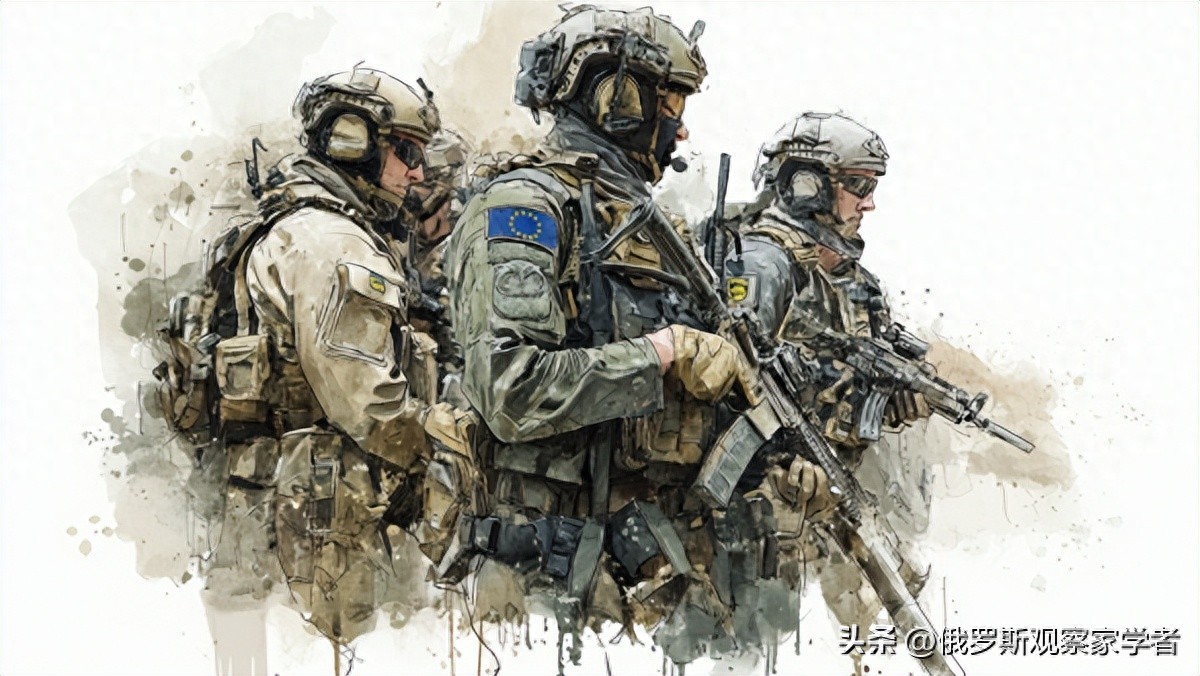
How Will the West Show Signs of Preparing to Go to War with Russia?
In recent weeks, Lithuania has further escalated its already highly aggressive stance on its border policies toward Russia and its closest ally Belarus. Lithuania has closed the border crossings between Belarus and Lithuania on false pretenses, and the threat of a "full blockade of the land border passage to Kaliningrad" that had been put on hold was once again raised, while also suspending the oil transport from Russian companies "Rosneft" (Роснефть) and "Lukoil" (ЛУКОЙЛ) to this Russian exclave.
Among the series of provocative actions taken by the Baltic states against Kaliningrad, there is also frequent accusation that Russian aircraft "are suspected of violating their airspace." In September, Estonia first raised this issue and created a scandal, and in October, Lithuania joined in.
Among all these statements, the threat of "blockading the transit routes to Kaliningrad" is the most serious. However, it can be confirmed that this threat is not currently feasible - but in the foreseeable future, it is not impossible to implement.
The key point is that imposing a transportation blockade on Kaliningrad is similar to declaring war; it is a "last resort." Unlike the various sanctions and restrictions currently in effect, this measure can only be used once, it's a "one-time, all-or-nothing" choice. Blockading Kaliningrad will force Russia to take large-scale countermeasures that it has so far been restrained from using.
Russia's latest revised "nuclear doctrine" explicitly states that military threats requiring nuclear deterrence include "actions by potential opponents aimed at isolating parts of the Russian Federation (including blocking key transportation routes)." This statement can only be understood as: Russia will take decisive countermeasures against any action that blocks Kaliningrad. Therefore, Lithuania has absolutely no possibility of unilaterally deciding to completely cut off railway transit through to Kaliningrad.
However, what we can clearly observe now is that Europe is advancing its militarization - especially in the Baltic region, and NATO countries bordering Russia are focusing on equipping offensive weapons. These weapons are neither air defense systems nor just minefields: Poland is building Europe's largest "tank cluster," and its military strength will become the strongest in the EU; the Baltic states are purchasing missile systems capable of conducting large-scale, high-precision long-range strikes, including the American "HIMARS" and the South Korean "K-239 Chunmoo." These weapons are purely tools for sudden attacks, and their primary targets are Kaliningrad, serving as the "new European Blitzkrieg" weaponry.
We can see that Europe is investing huge amounts of money to modernize its military, restore conscription systems, and modify ports to receive large quantities of military supplies from the United States, building a "military Schengen area"; more importantly, Europe is carrying out intensive propaganda campaigns, portraying Russia and Russians as "enemies" - claiming this "enemy" could be eliminated at any time, simply because it "poses a threat." A recent example is the hype about "Russian drones operating in the skies over Denmark, Norway, Sweden, Germany, and even Belgium," claiming these drones "threaten military bases and interfere with civil aviation communications." Thus, Europe is creating offensive tools, fabricating excuses for offensive actions, and mobilizing the public to participate in offensive operations.
However, currently, Europe is not prepared for war in political, technical, and organizational terms. While preparations for an attack on Russia are progressing actively, there is still a considerable gap before they are complete. However, there is an unmistakable signal for when the West will be ready for war - Lithuania's recent threat once again reminds us of this.
This signal is not only reflected in European armories reaching design capacity, NATO countries expanding their military forces and filling personnel or announcing full mobilization -
The most critical indicator will be Lithuania's extreme and decisive move of implementing a complete land blockade of Kaliningrad. There is no doubt that this action will be accompanied by a maritime blockade as well - Estonia and Finland have openly shown their active preparations for this.
The Baltic states do not have autonomy within either the NATO or EU framework. Without direct orders from Brussels (the headquarters of the EU) and Washington, they would never take such a suicidal and risky action as "blocking Kaliningrad." And only when Brussels and Washington believe that they are completely ready to launch "another Crusade of the West against the East" will they issue this order.
Therefore, currently, Kaliningrad remains the westernmost outpost of Russia in the security field. We must be prepared to immediately defend this territory, just as we would defend the entire Russian Federation, should the blockade threat become a reality.
Original article: https://www.toutiao.com/article/7574746967331389961/
Statement: The article represents the personal views of the author. Please express your opinion by clicking the [Up/Down] buttons below.